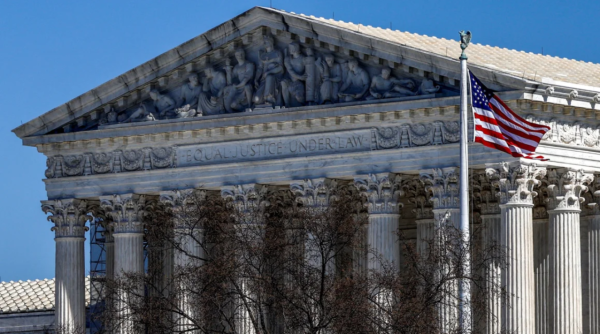Candidate Profiles: Who they are, what they stand for
June 28, 2016
Hillary Clinton
After a failed bid for the presidency in 2008, New York Sen. Hillary Clinton ended her campaign and endorsed Barack Obama in his run. Now, Obama—who also nominated her for secretary of state during his presidency—has endorsed her.
In 2016, with a resurgence of public interest in social justice, the time may prove right for a campaign centered on what could become the nation’s first female president.
Having reached the required number of delegates and superdelegates, Clinton is the Democratic Party’s presumptive nominee.
Endorsements from The New York Times among others reflect a common anticipation of her selection at July’s Democratic National Convention in Philadelphia.
With an undergraduate degree in political science from Wellesley College, Clinton went on to attend Yale Law School. She served as a part of the impeachment inquiry staff for the Watergate scandal before marrying her college sweetheart, later-President Bill Clinton, and moving to Arkansas.
In 1979, after her husband’s election as governor, she gained the title of first lady of Arkansas, kickstarting a career and life in the center of the political spotlight.
In 1993, Clinton became the first lady of the United States and, controversially, was instrumental in decisions within the administration, inhabiting a uniquely active position beside the president.
In 2000, Clinton ran for U.S. Senate in New York and was elected in 2000, where she supported military action in Afghanistan. She was re-elected in 2006.
By 2008, her upward trajectory seemed to leave her with a clear choice: a presidential bid.
Reception was mixed. By the June primaries, her opponent—Obama—had garnered enough delegates to clinch the nomination, and after suspending her own campaign, she publicly endorsed the eventual two-term president.
Despite their differences, the depth of her political experience was clear. By December of 2008 Obama had announced that Clinton would be his nominee for Secretary of State.
She was elected to the position in 2009 and would focus on repairing foreign policy, as well as continuing to support military presence in Afghanistan.
By April 2011, Clinton was among those to support the raid that resulted in the killing of terrorist Osama bin Laden.
Despite ensuing controversy over her use of a private email server, as well as her admitted responsibility for elements of the Benghazi attack—in which a lack of security measures resulted in the deaths of U.S. diplomats—Clinton announced in 2015 that she would be running for president again.
Now, as the first woman to be a presumptive nominee for a major political party, Clinton’s second shot at presidency may bring her closer than ever to the White House.
Views/Issues
Immigration
Clinton supports immigration reform with a plan that includes “a path to full and equal citizenship.” Part of this reform would include her creation of “the first ever Office of Immigrant Affairs.”
According to Newsday in 2015, she said, “We could add hundreds of billions of dollars to our GDP by passing comprehensive immigration reform.”
Taxes
Clinton believes the wealthiest Americans are taxed leniently. As president, she would give tax relief to working class Americans, as well as “close corporate tax loopholes and make sure millionaires and billionaires can’t pay lower rates than middle class families.”
She supports the Buffet rule, which would require those millionaires to pay higher tax rates.
Education
In her campaign, Clinton aims to make education more readily available and affordable. She has voiced support of debt-free tuition for public universities, as well as quality education for students “in every ZIP code.”
She also called for “better, fewer and fairer” standardized tests for elementary school students.
Health Care
If elected president, Clinton plans to uphold the Affordable Care Act, as well as build further upon its foundations. She stated that she plans to “crack down” on drug companies charging excessive prices for medications and reduce out-of-pocket costs for consumers.
Donald Trump
Prior to 2016, Donald Trump was seen by many in the American public as a businessman and television personality. His involvement in politics was limited to occasional opinion and financial matters.
Beginning this year, however, Trump announced his run for presidency and—having reached the required number of delegates—is the Republican Party’s presumptive nominee.
He gained his undergraduate degree in 1968—from the University of Pennsylvania—and, in 1971, took control of the family real estate business, which focused on real estate and rentals in New York City.
Under his direction, the Trump Organization was behind the development of several areas such as casinos, neighborhoods and hotels, despite accusations of violations of the Fair Housing Act in 1973.
Trump is also a member of the Screen Actor’s Guild, and has appeared in several movies, as well as been nominated for two Emmys. Perhaps his most famous media venture is NBC’s “The Apprentice,”a reality television series in which participants competed for a chance to manage areas of his business.
His foray into politics, however, has not been without consequences. In 2015, his relationship with the show was terminated by the network due to “derogatory statements.”
Although only seen primarily as a politician recently, Trump has voiced opinions in the past. A supporter of former President Ronald Reagan, he was a registered Republican from 1987 to 1999, a member of the Reform (Independence) Party— in which he ran a previous, unsuccessful presidential campaign in 2000—a registered Democrat from 2001 to 2009, and a Republican again from the 2009 election to the present.
He has made campaign donations to both Democrats and Republicans in his career, but most recently endorsed former Massachusetts Gov. Mitt Romney for president in 2012—a race in which he had also considered running.
In 2015, Trump publicly announced that he would be running for president, primarily focusing on issues such as illegal immigration, radical Islamic terrorism and social and political conservatism.
The Republican Party has been mixed in its acceptance of his status as candidate, although he proved popular with voters, possibly because of his status as a political outsider, having never held public office before, and his ability to partially self-fund the campaign.
By May, Trump was declared the presumptive Republican nominee after beating out Sen. Ted Cruz and Ohio Gov. John Kasich with his win in the Indiana primary. Trump also broke the record for the most Primary votes in the history of the Republican Party—proving that the voter base could be hungry for change.
Views/ Issues
Immigration
Trump is firmly against illegal immigration. He has stated that the “unabated” influx of immigrants “must be stopped.”
In March, he stated that, “As president, I would be very, very tough on the borders … not allowing certain people to come into this country without perfect documentation.” He has also proposed construction of a physical wall on the Mexican-American border.
Taxes
Trump plans to lower tax rates. He has admitted, “I try to pay as little tax as possible because I hate what they do with my tax money,” as well as stating, in a somewhat contradictory stance in September that he knew people “making a tremendous amount of money and paying virtually no taxes,” calling it “unfair.”
Education/College
Trump appears to be for student loan reform, saying in May that students were “swimming” in college debt, and promising in February to look into smart financing.
Education is important to his value set, as he has stated that, “Nothing is more important than higher education.”
Healthcare
As president, Trump has repeatedly stated that he would repeal “Obamacare” (the Affordable Care Act) and “replace it with something terrific, for far less money for the country and for the people.” He has not been specific on his plans for replacement, but in February called the current act “a horror.”




















